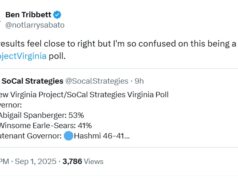
America for the wealthy may be the slogan for the 21st Century in the U.S. Sure, maybe the history of the US reveals a not too dissimilar narrative. But Americans, since the end of World War 2, had come to expect a growing standard of living relative to their parents and a chance to reside within the now seemingly elusive middle class. Most disconcerting perhaps is that there seems to be no clear champion of the middle and working class of America at present.
Instead, our libertarian friends, the majority of which are far from socioeconomically destitute, call for a rollback on “big government” alongside their conservative friends. The conservatives themselves add a strongly moralistic flavor to their calls for “starving the beast,” a call which continuously contradicts itself by expansive military spending and Fortune 500 tax loopholes. The Democratic Party, the purported bulwark of the middle and working classes of America, appears more convinced that a “move towards the middle,” and consequently away from middle class principles, is the light at the end of the tunnel of their political future.
With America’s environmental and human health in limbo in particular, Republicans countrywide have, through some grotesque twist of logic, tried successfully to curtail the progress that two generations of Americans have made in the arena of environmental regulation alone. Treasured ecosystems are no longer safe, species that should be placed on the endangered species list may never get that chance before their extinction, and the air may become so polluted that asthma levels continue their steady growth well into the future. Human and environmental health has therefore been placed on the congressional chopping block, not the U.S. budget.
In Virginia, it remains to be seen whether sound scientific analysis will inform an eventual decision to lift the 1982 moratorium on uranium. The General Assembly of Virginia has proven time and again that it puts economic logic ahead of all other factors. But in the case of uranium mining in Virginia, the consequences could indeed be their most severe yet if the potential impacts to human and environmental health are not taken into account above and beyond economic considerations.
Ironically, the biggest hold-up on a uranium mining moratorium lift could be the lack of red tape that Virginia has in place to regulate uranium mining. In fact, Virginia has no regulatory framework at all with which to regulate uranium mining in the state. The immense uncertainties involved in regulating uranium mining in Virginia, then, is apparent.
But the 21st Century has turned out to be the epoch of the rich. They received their big government bailouts, choked out the middle class to grow their own profits, and turned America’s unions into burnt-out figments of their former selves, among other things. So will the moratorium on uranium mining in Virginia be lifted? Maybe this will be a new chapter for real Americans and a real America. Maybe this time the middle and working classes will “win.”














